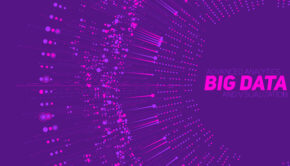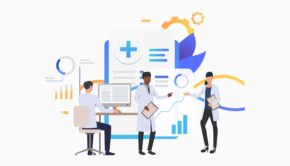Utilizing Different Fields of Healthcare Data
Collecting and analyzing healthcare data is essential for the continued advancement of medical solutions in the lives of everyday people. With the right data, healthcare providers can save time, money, and lives. But right now, healthcare data isn’t being utilized to its maximum potential.
The reasons for this are many. Collecting healthcare data requires complex procedures, thorough questioning, and cohesive communication across the healthcare system. Experts have discussed solutions for streamlining data collection and communication, but how should that data be used?
Implemented effectively, healthcare data can be utilized to benefit nearly every aspect of healthcare from hospital staffing to cutting down on the expenses of unnecessary care procedures. Additionally, healthcare data science has untapped potential in helping to diagnose and treat mental health issues.

Image Source: Pexels
Streamlining care through big data
Vast quantities of data are accumulated in the process of caring for individuals. Demographics ranging from age to ethnicity are stored and archived in healthcare facilities, and with modern data analytic techniques, that data can be used to monitor everything from pre-emptive care to pandemic prevention.
Through this collected information, often referred to as “big data,” a broader picture of interacting systems is created. This enables data scientists to innovate and adjust policies and procedures for best practices, potentially maximizing the efficiency of healthcare.
Big data enables healthcare providers to chart everything from patient communication to movement patterns throughout a care facility. When analysts have access to this kind of information, they are able to find areas for improvement at a glance. Every second counts when it comes to saving lives, and comprehensive data collection and utilization can make a real difference.
Improving the healthcare system
Utilizing healthcare data fundamentally means improving key areas of care for patients and providers alike. Through data use, healthcare systems can increase efficiency in the following areas:
- Administration: Through the use of big data, care facility administrators have access to information like the amount of time patients are spending in different parts of the hospital or clinic. Staffing trends can be analysed for busier vs. slower shifts. Patient and staff needs can be seen and addressed predictively and efficiently. Utilising healthcare data means an efficient operation, maximizing patients seen and cutting costs.
- Communication: Effective communication is a fundamental aspect of quality care. To produce the most patient satisfaction and the best outcomes including cutting down on cancellation rates, providers must maintain a comprehensive communication strategy. Big data gives providers the tools for measuring message interaction and visibility, allowing them to craft timely, specific points of contact with their patients.
- Procedures: Finally, efficient use of healthcare data means saving time and cutting costs for both the facility and the patient. Digital tools give nurses strategies for quicker and more thorough charting of patient information, enabling care providers to see patterns and reduce unnecessary steps towards healthcare solutions.
With administration, communication, and procedures optimized to reduce costs, both care providers and their patients stand to benefit from effectively utilized healthcare data. But these aren’t the limits of what data use can do. In fact, utilizing big data may change the way an entire field of healthcare issues are found and treated.
Improving mental health diagnoses and treatment
Awareness of mental health and its importance in each of our lives is constantly progressing as healthcare providers discover new ways to treat and talk about these problems. In this field, big data analytics has emerged as a tool in the diagnosis and treatment of mental health issues for millions of individuals.
Here’s how:
Fueled by big data, Artificial Intelligence (AI) tools have been created that could help mental health professionals, insurance providers, and employers find and assist those struggling with mental illness. These tools can help patients navigate around difficulties they may encounter when speaking with a therapist and can even recommend pre-emptive appointments when symptoms worsen.
Additionally, researchers have concluded that by cataloging the specific symptoms of mental health illnesses with a database of treatments and results, they can use big data to help predict if a drug will work for an individual. This is a life-saving tool for healthcare providers, who can then better prescribe a treatment plan to a struggling patient without having to go through as much trial-and-error.
Mental illness will affect 46.4% of American adults in their lifetimes according to Mental Health First Aid. The scope of these issues require large-scale analysis for the proper understanding and treatment needed by nearly half the population. Data science may be just the tool needed for predictive and useful insight that can improve mental health care for millions.
Preventing Suicide
AI created through the implementation of big data can also be used to predict and combat suicide. Through the accumulation of data for the most at-risk individuals, AI technology and machine learning finds high-risk indicators, flagging certain words or phrases that may demonstrate a greater danger. The AI can then move an individual up in a crisis phone or text line for faster help.
An article published in the American Journal of Psychiatry found that risk scores in the top 5% accounted for almost 50% of suicide attempts in the 90 days following a healthcare visit. Data like this in combination with AI and machine learning tools have the potential to flag these and other risk factors and assist physicians in reaching out with follow-ups.
Saving lives through big-picture analysis
Through its ability to paint an incredible amount of information in a comprehensive picture, big data analysis can help save lives, increase mental health awareness, enhance treatment strategies, and cut administrative costs to both provider and patient.
Big data is transforming healthcare and other industries with high-quality analysis software to find life-saving solutions to everyday problems. As big data collecting and analysis tools improve, we see the merging of technology with human beings to create better health outcomes.
There is a place for big data, AI, and machine learning in healthcare. All it takes is the utilization of the right data and tech tools for the job.
















